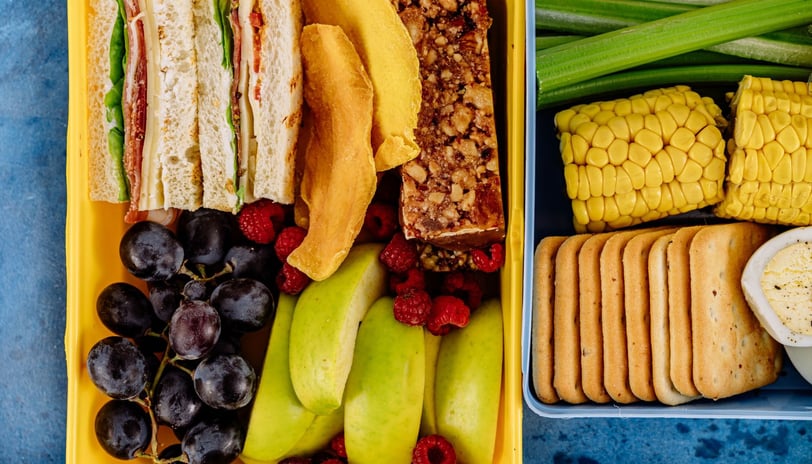Easy Ways to Boost Metabolism for Natural Weight Loss
Discover scientifically proven methods to boost metabolism and accelerate weight loss naturally. Learn effective diet, exercise, and lifestyle changes for lasting results
11/26/20248 min read


Easy Ways to Boost Metabolism for Natural Weight Loss
Do you find it hard to keep a healthy weight? The key to lasting weight control might be in your metabolism. Your metabolism is how your body turns food into energy. It plays a big role in whether you gain or lose weight.
But what if you could make your metabolism work for you? We'll look at ways to naturally boost your metabolic rate. This can help you on your weight loss path.
Key Takeaways
Understand the science behind metabolic rate and its role in weight management.
Discover how proper nutrition, protein intake, and strategic meal timing can enhance metabolic function.
Learn about thermogenic foods and beverages that can naturally increase your metabolism.
Explore the power of high-intensity interval training (HIIT) and its impact on fat burning.
Recognize the importance of sleep and stress management for optimal metabolic health.
Understanding Metabolism and Its Role in Weight Loss
Metabolism is key to managing weight and health. It's how your body turns food into energy. This energy powers everything from breathing to thinking.
The Science Behind Metabolic Rate
Your metabolic rate is how many calories you burn when you're not moving. It depends on your age, gender, muscle, and genes. Those with a higher metabolic rate find it easier to stay fit and burn fat.
Factors Affecting Metabolic Function
Age: Metabolism slows down with age.
Gender: Men usually burn more calories than women because of more muscle.
Muscle mass: More muscle means more calories burned at rest.
Hormones: Hormones like thyroid and insulin affect metabolic rate.
Physical activity: Exercise boosts metabolic rate and fat burning.
How Metabolism Influences Weight Management
A faster metabolic rate helps burn calories better. This makes it easier to keep a healthy body composition and reach weight loss goals. But, a slower metabolic rate makes losing weight harder.
"Understanding your metabolism is the key to unlocking sustainable weight loss and maintaining a healthy body composition."
Knowing how metabolism works lets you take steps to improve it. This supports your health and wellness goals.
How to Boost Metabolism Through Proper Nutrition
Proper nutrition is key to boosting your metabolism. By choosing the right foods, you can help your body burn calories better. Here's how to use nutrition to boost metabolism, lose weight, and reach your health goals.
One important factor is a calorie deficit. This means eating fewer calories than you burn. It makes your body use fat for energy. But, do it in a balanced way to keep your metabolism fast.
Eat nutrient-dense, whole foods: Include proteins, complex carbs, and healthy fats in your diet. These foods support your metabolism and prevent starvation.
Nutrient timing matters too. Eat calories evenly throughout the day. Don't skip meals or eat too much at once. This keeps your metabolism steady.
Make sure you get enough protein: Protein helps build and keep lean muscle. This boosts your resting metabolic rate. Eat high-quality protein at every meal.
"Proper nutrition is the foundation for a healthy, efficient metabolism. By making smart food choices and implementing strategic nutrient timing, you can unlock your body's natural ability to boost metabolism and achieve your weight management goals."
Remember, lasting weight loss is more than just cutting calories. By matching your nutrition with metabolic science, you create a strong plan for long-term health and wellness.
The Power of Protein in Metabolic Enhancement
Protein is key for boosting your metabolism and losing weight naturally. Knowing the best protein sources, when to eat them, and how much is important. This helps your body burn fat better and improves your body shape.
Optimal Protein Sources for Fat Burning
Not all proteins are the same when it comes to burning fat. Choose lean, high-quality proteins like:
Lean cuts of chicken, turkey, or fish
Eggs or egg whites
Greek yogurt or cottage cheese
Plant-based proteins like lentils, beans, or tofu
These foods help grow muscle and increase your body's heat production. This means you burn more calories.
Protein Timing and Portion Guidelines
Timing and portion size are important for protein's benefits. Eat protein-rich foods all day, not just one big meal. This keeps your muscles strong and your body composition balanced.
Try to eat 20-30 grams of high-quality protein at each meal or snack. Adjust this based on your needs, how active you are, and how many calories you eat.
Building Lean Muscle for Higher Metabolism
Eating protein helps build lean muscle, which boosts your metabolism. Having more muscle means your body burns calories even when you're not moving.
Pair a protein-rich diet with strength training for the best fat burning and metabolic boost.
Strategic Meal Timing for Metabolic Optimization
Optimizing your metabolism is not just about what you eat. When you eat is also key to a healthy metabolic rate. Nutrient timing and intermittent fasting are two strategies that might help.
Nutrient timing means planning your meals and snacks to help your body use nutrients better. It suggests eating certain foods, like protein, at the right times. This can boost metabolic rate and aid in fat loss.
Eat a protein-rich meal soon after waking to start your metabolism.
Pair carbs with protein in meals to keep blood sugar stable and improve nutrient use.
Have your post-workout meal to refill glycogen and aid muscle recovery.
Intermittent fasting involves alternating fasting and eating periods. This can help your body enter a state of metabolic optimization. It may improve insulin sensitivity, increase fat burning, and boost metabolic rate.
"Timing your meals and snacks strategically can be a powerful tool for optimizing your metabolism and supporting your weight loss goals."
Whether you prefer nutrient timing or intermittent fasting, find what suits you best. Try different meal patterns and timing to see what works for your metabolism.


Thermogenic Foods That Naturally Boost Metabolism
Boosting your metabolism is essential for lasting weight loss. Luckily, nature offers many thermogenic foods to help burn calories all day. Adding these metabolism-boosting foods to your diet can enhance your body's fat-burning abilities. This makes reaching your health goals easier.
Spices and Herbs for Metabolic Enhancement
Certain spices and herbs can kickstart thermogenesis, the body's heat generation. This leads to a quick increase in metabolism. It helps you boost fat burning and manage weight better. Here are some great options:
Cayenne pepper and chili peppers
Ginger
Turmeric
Cinnamon
Black pepper
Beverages That Increase Metabolic Rate
There are also drinks that can increase your metabolic rate. These thermogenic beverages can support your body's natural fat-burning process. Enjoying these drinks can give you an extra metabolic boost:
Green tea
Black coffee
Oolong tea
Matcha green tea
Using thermogenic foods, spices, herbs, and drinks can easily boost metabolism. This can take your weight loss journey to new levels. Try these natural metabolism-enhancers and see how they improve your calorie-burning abilities.
The Role of Exercise in Metabolic Function
Regular exercise is key to boosting metabolism and managing weight. It helps burn calories more efficiently. This keeps your body composition healthy.
High-intensity interval training (HIIT) is a top choice for boosting metabolism. It involves short, intense workouts followed by rest. HIIT increases calorie deficit and fat-burning, improving metabolic function.
"Incorporating HIIT into your routine can be a game-changer for your metabolism. The intense bursts of activity quickly raise your heart rate, causing your body to work harder and burn more calories, even long after your workout is over."
Strength training also boosts metabolism. It builds lean muscle, which burns more calories than fat. This means you burn more calories all day, even when resting.
Engage in a variety of cardiovascular exercises, including high-intensity interval training (HIIT), to maximize metabolic benefits.
Incorporate strength training to build lean muscle mass and further enhance your metabolic rate.
Aim for a balanced exercise routine that combines both aerobic and resistance training for optimal metabolic function.
By focusing on exercise, you can manage your weight and reach your health goals. Regular physical activity is essential.
High-Intensity Interval Training for Maximum Fat Burning
Looking for a top way to boost your metabolism and burn fat? High-intensity interval training (HIIT) is your answer. It's a popular choice because it gives great results fast.
HIIT Workout Plans for Beginners
Starting with HIIT is exciting. It's key to have a good plan for beginners. A simple HIIT routine might be sprinting for 30 seconds, then walking for 1 minute. Do this cycle a few times.
The goal is to go all out during the intense parts. This helps your body burn more calories.
Advanced HIIT Techniques
Once you get the hang of HIIT, try more advanced methods. You could add bodyweight exercises, resistance training, or cycling to your workouts. This keeps your body guessing and helps you see better results.
Remember, sticking to HIIT and getting enough rest is important. Let your body recover well. As you get fitter, you can make your workouts harder. With hard work and creativity, HIIT can help you reach your weight loss goals.
"HIIT has been shown to be one of the most effective workout strategies for boosting metabolism and burning fat."
Sleep and Stress Management for Metabolic Health
Getting the right metabolic rate, weight loss, and body composition is more than just diet and exercise. Quality sleep and managing stress are key to keeping your body's metabolic processes in check. Not enough sleep and too much stress can mess with your hormones, slowing down your metabolic rate and making it hard to lose weight.
Try to get 7-9 hours of good sleep each night to help your metabolic function. Stick to a sleep schedule, make your bedtime area calm, and try stress-reducing activities like meditation or deep breathing. To handle stress, do regular exercise, practice mindfulness, and enjoy hobbies that make you happy.
By focusing on sleep and stress, you can boost your metabolic rate. This leads to lasting weight loss and better body composition. Add these holistic tips to your life to improve your metabolic health and overall well-being.
FAQ
What is the role of metabolism in weight loss?
Metabolism is key in weight loss. It decides how fast your body burns calories. A quicker metabolism means you burn more calories, even when you're not moving. This helps you lose weight by creating a calorie deficit.
Can certain foods and beverages boost metabolism?
Yes, some foods and drinks can make your metabolism faster. Spicy foods, green tea, coffee, and protein-rich foods are examples. They can increase your metabolic rate temporarily.
How does exercise impact metabolic rate?
Exercise, and HIIT in particular, can really boost your metabolism. HIIT workouts burn calories long after you finish. This leads to more fat burning and weight loss.
What is the relationship between sleep, stress, and metabolism?
Sleep and stress management are vital for a healthy metabolism. Not enough sleep and too much stress can mess with hormones. This can slow down your metabolism and lead to weight gain.
How does protein intake affect metabolic rate?
Eating enough protein can speed up your metabolism. Protein takes more energy to digest and use than carbs and fats. This increases your metabolic rate temporarily.
Can intermittent fasting help increase metabolism?
Intermittent fasting might boost your metabolism. It helps your body use fat for energy. But, how it affects you depends on the fasting method and your body.
What is the best way to calculate my daily caloric needs for weight loss?
To figure out your daily calorie needs for weight loss, use the Harris-Benedict equation. It considers your age, gender, height, and weight. Adjust this number based on your activity level to create a calorie deficit for losing weight.


